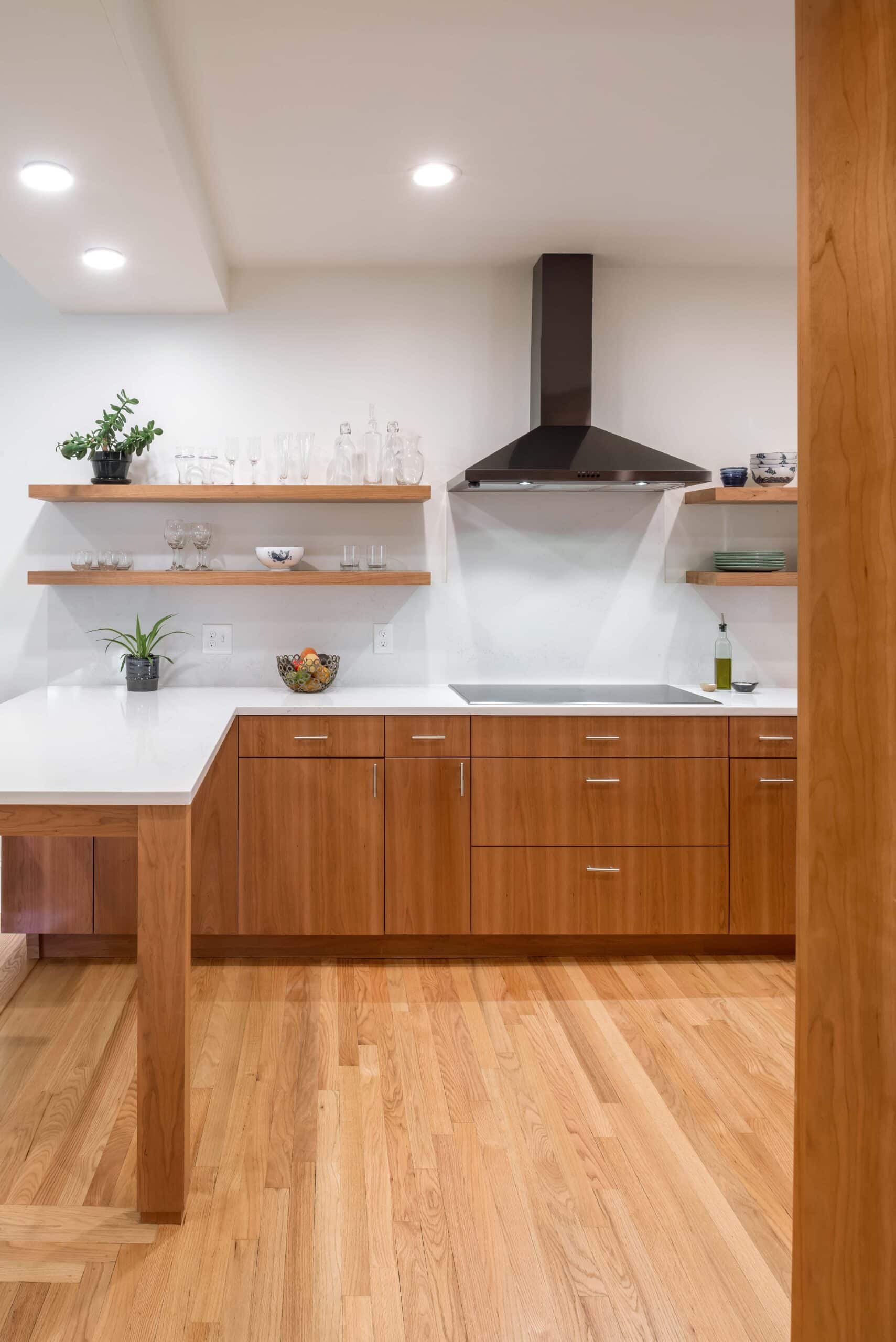
What is home electrification?
With the recent alarming news about gas stoves, many homeowners are considering their options for how they cook and fuel their homes. New technology offers life-changing benefits, like a healthier interior living space, a cleaner environment, and potential savings on high utility bills. But the buzz around gas stoves aside, these ideas have been developing in our industry for some time. The residential building and remodeling world has been headed toward home electrification for several years. But what is home electrification? And why should you consider home electrification in your remodel or new home build in Rhode Island or Massachusetts?
What is home electrification?
Home electrification is the process of providing electrical power to a residential property or household. This includes installing electrical wiring, outlets, and switches and connecting to the power grid (or alternative power sources such as solar panels). But today’s electrification takes this simple concept a few steps forward. Electric technology is getting better and more effective; its efficiency is exponential over fossil fuel appliances, paving the way for continued and future improvements in power generation.
The advancement of home electrification technology has already revolutionized how we live in and build our homes, enabling us to use electrical appliances and devices for cooking, cleaning, entertainment, and communication. It has also made lighting and heating our homes more convenient and efficient. In recent years, there has been a growing trend towards “smart homes,” where various systems such as lighting, HVAC, and security can be controlled remotely using mobile devices or voice assistants. Overall, home electrification has transformed how we live and made our homes more comfortable, convenient, and energy-efficient.
What is the future of home electrification for remodeling?
The future of home electrification for remodeling is driven by advances in technology and changes in homeowner preferences. Here are a few key trends that may shape the future of home electrification:
Emphasis on energy efficiency:
As homeowners become more aware of the environmental and economic benefits of reducing energy consumption, builders may focus on designing and constructing homes that are more energy-efficient. This will include using materials that provide better insulation, installing more efficient HVAC systems, and incorporating smart technologies that help homeowners manage their energy usage. Many cities in Massachusetts have already adopted a Stretch Code for new home builds and large additions that require these efficiencies. Rhode Island energy code will not be too far behind. A Stretch Code is a state’s building code that provides a more stringent set of energy efficiency standards. It includes provisions related to insulation, air sealing, windows, lighting, and HVAC systems, among other things.
Focus on health and wellness:
Over the last several years, people have spent more time indoors, creating a greater emphasis on designing homes that promote health and wellness. Builders are increasingly incorporating features such as air filtration systems, water filtration systems, and natural light sources to improve indoor air quality and overall well-being. Switching from a gas stove to an induction cooktop is another option for improving your indoor air quality that is quickly gaining traction (read about the benefits of induction here).
Increased adoption of renewable energy:
With the cost of solar panels and other renewable energy sources continuing to decline, more homeowners are likely to install these systems to power their homes. Builders will soon be required to incorporate solar panels or other renewable energy sources into new homes to meet this demand. Massachusetts stretch code includes provisions related to renewable energy, such as requirements for solar-ready roofs and electric vehicle charging infrastructure.
Integration of smart home technologies:
With the rise of voice assistants, smart thermostats, and other connected devices, builders may increasingly incorporate these technologies into new homes. This could include wiring homes for smart technologies, installing smart home hubs, and incorporating features that allow homeowners to control their homes remotely.
Looking for Savings
RI and MA have some of the most progressive building codes in the United States when it comes to home and vehicle electrification. Both have offered tax incentives and rebates for energy efficiency upgrades in the past, but you should check your area for the most recent updates. Their building codes and policies reflect a strong commitment to reducing greenhouse gas emissions, promoting energy efficiency, and building more sustainable and resilient communities.
Home Electrification Remodeling in Rhode Island and Southeastern Massachusetts
Overall, the future of home electrification for builders is likely to be characterized by a focus on sustainability, efficiency, and advanced technologies that enhance the functionality and livability of new homes. To learn more about upgrading your home to be healthier and more efficient, contact Red House today.
- Category :
- Type :

